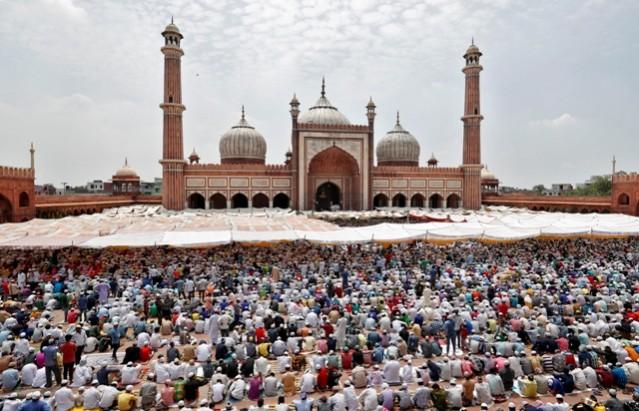
In view of Eid-ul-Adha (Bakrid) amid coronavirus pandemic, the Karnataka Wakf Board has permitted citizens to offer 'namaz' (prayer) inside mosques on the occasion of on Saturday, August 1 under the COVID guidelines.
Eid Namaz is usually held at bigger and open spaces like Eidgah but due to Coronavirus scare and heavy rains, the prayers will be conducted inside mosques across the state.
Though traditionally prayers are offered in open spaces of the Eidgah (open grounds), forecast of heavy rain and COVID-19 fears has forced the devout to conduct it inside mosques in cities and towns across the state.
COVID guidelines to be followed during Eid Namaz:
- As wearing a mask, sanitising hands and maintaining physical distance inside the mosque are mandatory, all participants have been advised to strictly follow the guidelines to avoid being denied entry.
- Citizens above 60 years, persons with co-morbidities or asymptomatic and children below 10 years should offer namaz at home.
- In-charge of every mosque must ensure disinfection of the premises and its surroundings before and after namaz.
- Entry of devout has to be regulated on first-cum-first basis
- Every devout will maintain 6 feet inside a mosque after thermal scanning at the entry point.
- Each should bring their own prayer mats to the mosque.
- None should touch religious literature in the premises
- Shaking hands and hugging each other are prohibited.
- They can greet each from a distance.
- Beggars are not allowed to squat around mosques to avoid crowding.
- The qazis (priests) have also been advised to complete the namaz, including Khutba in 20 minutes before 8 a.m. and close the mosque soon after.
- "The qurbani (sacrifice) of animals has to be made only in designated abattoirs (slaughter house) or secluded places, maintaining hygiene and their waste residuals have to be properly disposed of at the earliest.
- Slaughtering animals in public places, open spaces and community halls are strictly prohibited and action will be taken against its violators.











